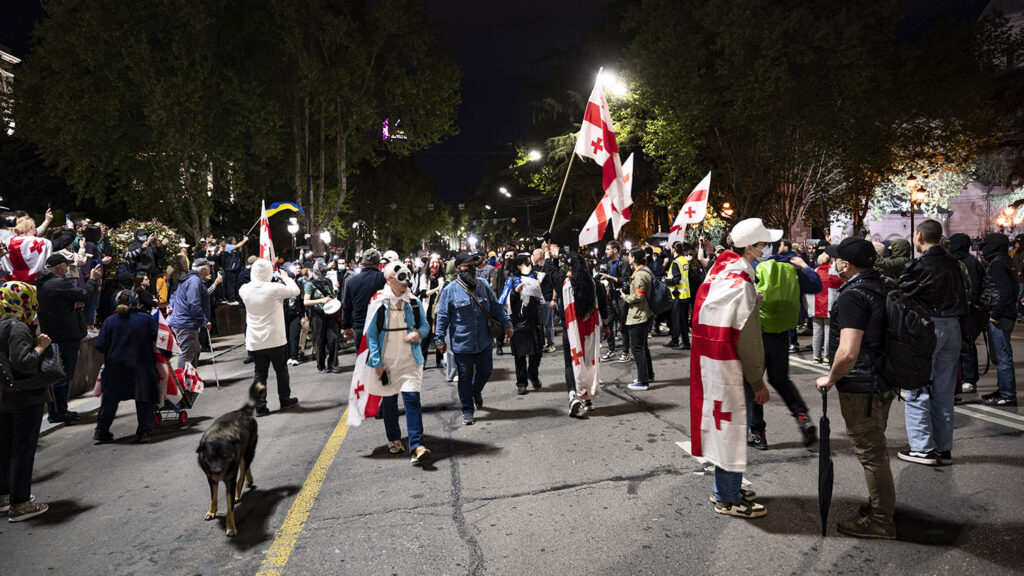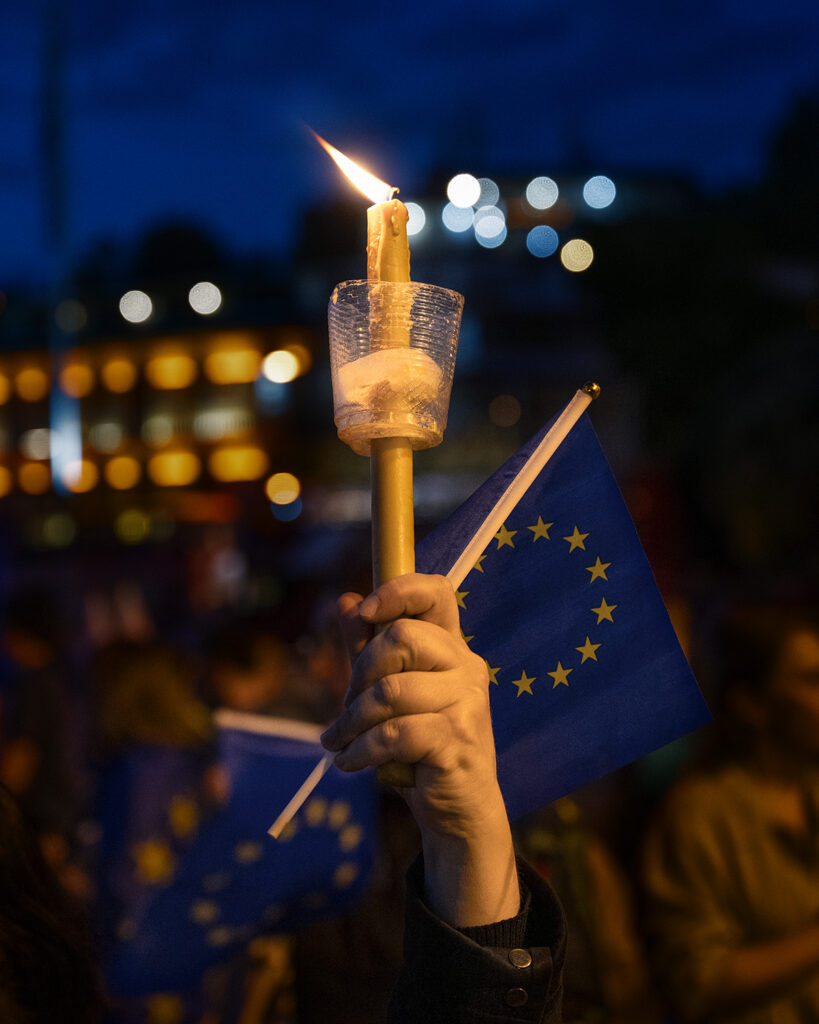
There’s no stopping the demonstrations. For over 300 consecutive days, Georgian citizens have been marching through the streets of their capital and other cities, both large and small, in protest against the self-proclaimed government. They are calling for the release of all political prisoners, new and fair elections, and the continuation of Georgia’s accession process to the EU.
Although the number of participants varies, the determination of those who show up remains unwavering. Defying current probabilities, they continue to stand up for—and believe in—a near future within European and Western alliances.
Tensions now appear to be rising again in the days leading up to the local elections on October 4th, with some opposition forces calling for a mass demonstration on election day, aimed at peacefully overthrowing the government.
Meanwhile, the self-proclaimed Georgian government is doing everything in its power to further widen the rift with the European Union. It has summoned first the German, then the British ambassador, accusing them of “interference in the internal affairs of the host country.” Unsurprisingly, these actions—along with similar remarks previously voiced by government representatives—were met with a swift and firm response from the Delegation of the European Union to Georgia, which rejected “the baseless and damaging accusations about the role and activities of some diplomatic missions in Georgia.”
The situation highlights both the resilience of Georgian civil society and the deepening diplomatic tensions, underscoring the high stakes as the country approaches what could be another critical electoral moment—even though most opposition parties are not participating, having rejected the legitimacy of the current administration.

